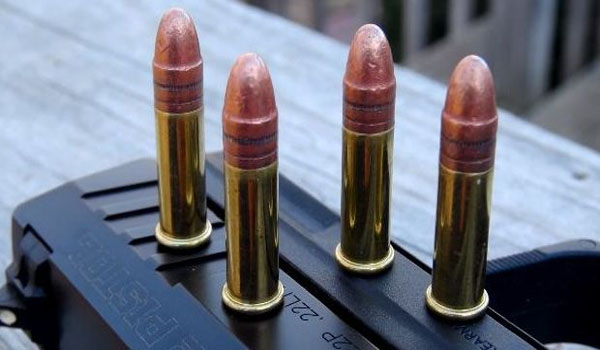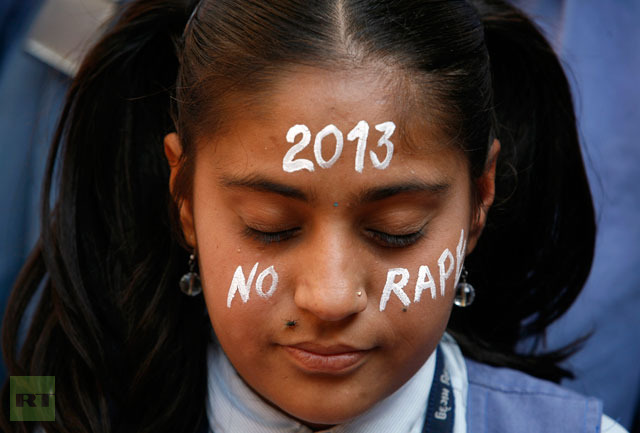
INDIAN WOMEN TURN TO GUNS: RAPE TRIGGERS BIG RUSH TO ACQUIRE ARMS
From Truther
But country’s draconian gun control laws leave them defenseless
A sense of insecurity has gripped the female population in parts of India. As the ashes of the New Delhi gang rape victim were scattered over the Ganges River, hundreds of Indian women applied for firearm licenses and joined self-defense classes.
Since the news of the brutal gang rape and murder broke in December, 274 Delhi women have applied for gun licenses, Delhi police said. Some 1,200 more have called the licensing department to inquire how to obtain one.

“These include not only the average working woman, but even students who travel long distances to colleges and even their concerned parents. They were eager to find out more on the procedure to acquire arms,” a Delhi police officer told The Times of India.
Hundreds turned up at the police department seeking permission to get a gun for self-defense, with officers having to explain that “a clear danger to one’s life” should exist for someone in India to be given a license.
“They said that with even public transport no longer safe in the city, they just cannot take chances. When we told them this could not be reason enough, we were told to provide in writing that their daughters were indeed safe on Delhi’s roads,” the officer added.
Not only do the women of India suffer from male violence with impunity, they are also discriminated against in their rights to legally acquire arms, the Indian National Association for Gun Rights said.
“The fact that even parents are ready to hand over weapons to their daughters shows they are living in fear. There is a 20% increase in self-defence courses across the city,” he concluded.
Out of more than 800 applications for guns received from women over the last two years, only a few dozen have been accepted by the Delhi police, with just a handful of licenses granted on the grounds of personal threats. Others were rejected as “no personal safety threat was assessed,” though “self-defense” is an increasingly popular reason provided in applications.
This may not stop some of the parents from buying guns on the black market, or illegally manufactured weapons. Of 40 million firearms in the hands of Indian civilians only 6.3 million have been registered, the international bulletin of firearm injury prevention GunPolicy.org estimates.
.jpg)
An Indian woman handles an Indian-made revolver at a newly opened gun shop in Lucknow.(AFP Photo / Pawan Kumar)
Raped for 40 days by 42 men
The widespread public anger due to the violence against women has been reflected in the press, which has been recalling similar tragedies from India’s recent past.
In 1999, a 16-year-old girl was abducted by a bus conductor in the Indian state of Kerala, who then raped her and passed on to others, 42 men raping her in turn for over a month. She was left out in the street severely injured, penniless, and ultimately disgraced, with her family having to move several times because of the mockery of their neighbors.
“Nobody accepts us; when they see us, they try to avoid us. We don’t go out,” the victim’s father was quoted as saying by India’s NDTV.
Of the 35 people convicted for raping the teenage girl, all but one were ruled not guilty when Kerala’s High Court reviewed the case three years later. The decision was heavily criticized, some activists claimed the rapists were set free because they were well connected in Kerala.
But unlike many others in India, the family has decided to fight till the end appealing against the verdict to the Supreme Court, and is now awaiting a hearing.
Despite the vast public attention for cases like this and the 2005 Domestic Violence Act outlawing all forms of violence against females; rape, abduction and trafficking of women and girls remains a major problem in India.
“Women and girls continue to be sold as chattels, married off as young as 10, burned alive as a result of dowry-related disputes, and young girls exploited and abused as domestic slave labour,” Save the Children activist Gulshun Rehman said.
This, combined with widely reported police indifference, sparked the mass protests on the streets of Delhi calling for more effective laws and law enforcement to ensure the safety of women in the most-populous democratic country in the world.

A student prays during a vigil for a gang rape victim, who was assaulted in New Delhi, in Ahmedabad.(Reuters / Amit Dave)
